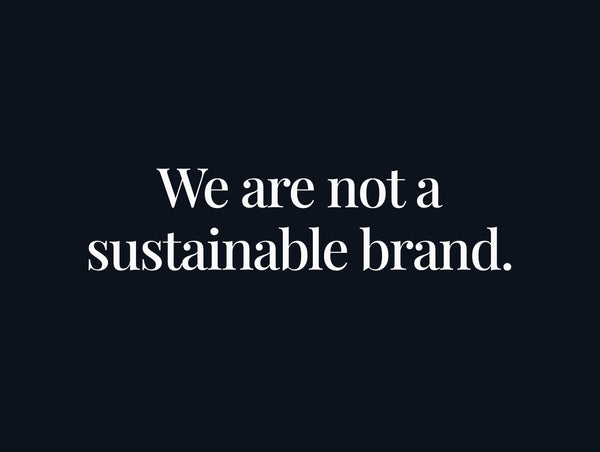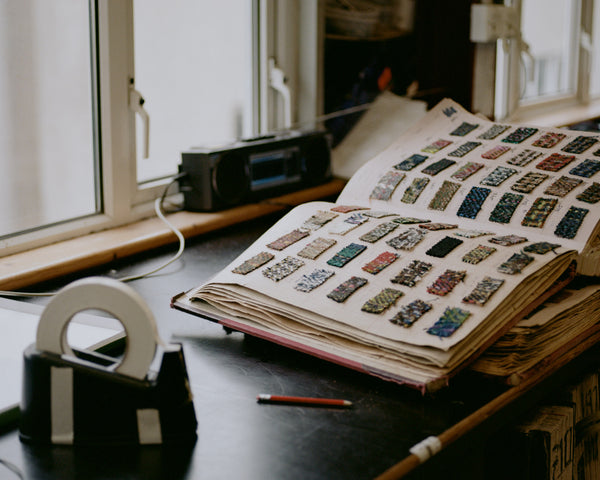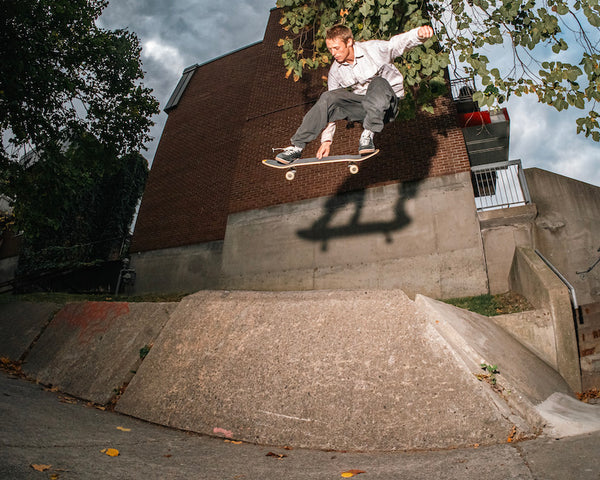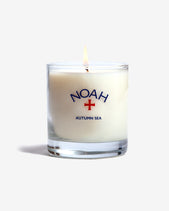
War seems inevitable, as if it’s built into our DNA. We’ve consistently proven that we lack the skills necessary to negotiate our way out of war. Or is it that the powerful who decide whether or not we stay at war profit from it? They sit in their high towers and send our young people off to kill other young people under the guise that it’s to preserve our way of life and protect our interests. But it doesn’t. We don’t benefit from the oil stolen, the natural resources pilfered, or the security contracts doled out to protect construction work to rebuild nations in our image. And worse, the most affected people in conflict zones are children—innocents who have no say in war and are being killed, maimed, orphaned, or rendered homeless.
We sit idly by and allow these atrocities to occur. Where is the outrage for children in Yemen, Afghanistan, and Syria? Until we actively pursue non-warfare means of settling cultural and economic differences, we’ll remain barbarians.
We've invited Vice war correspondent, Ben Anderson, who has seen the horrors of war and its effects on children firsthand, to read from and discuss his book, No Worse Enemy, at our SoHo store on Thursday, September 26th at 7pm. Read our interview with Ben and his recommended reading below.

First off, how did you decide to become a war reporter?
As soon as I started reading about what was going on in the world—I was about seventeen—I was sure that conflict, and the effects of conflict on civilians, was the most important story. I read about Iraq, Congo, Palestine, East Timor, Chile, and I couldn’t understand why the stories I was reading weren’t front-page news. I almost ran out into the streets to tell people what I’d been reading. I still feel that way today, even though it’s long been clear that most people just don’t feel the same.
Can you tell us about your first time reporting from an active war zone. Were you terrified or are you as cool as you seem on camera today?
I probably looked like I was cool, but I was in a state of shock. I’d been to a few war-torn countries, but hadn’t seen much actual conflict. Liberia was probably the first where I got a real taste of it—not conflict but how bad the effects of conflict can be. We joined a rebel group called LURD (Liberians United for Reconciliation and Democracy) and the average age of their soldiers was about fifteen. Having spent a few days with them, and even though we hadn’t seen any actual fighting, I remember driving back through a UN peacekeeping checkpoint and it was like suddenly emerging from a dream. It was hard to believe that what I’d seen was possible.
How many areas of conflict have you reported from?
I honestly don't know. I’ve been to Afghanistan eighteen times, Iraq multiple times, Syria, Congo, Gaza and the West Bank, Yemen, CAR, Ivory Coast, Liberia, Nigeria, Sudan, Venezuela, BraziI ... I haven’t been to Somalia.

I know that children are affected by conflicts but it doesn't really make the nightly news. Why do you think the horrors children face in war aren't more widely reported?
I’m not sure its children being affected by conflict that isn’t being reported on; it’s just conflict in general. I’m sure you remember the picture of Alan Kurdi’s body washed up on a beach? The Nigerian schoolgirls kidnapped by Boko Haram? You’ve seen images of some of the tens of thousands of children currently dying of starvation and disease in Yemen? They are covered, albeit briefly, then forgotten about. Lots of us thought the Alan Kurdi picture might have enough impact to actually lead to some kind of change, but it didn’t. It faded pretty quickly. It’s always been very hard to get people to care about intentional affairs—and I think it's even harder now—partly that’s the legacy of the Iraq and Afghanistan wars, where fatigue and confusion really set in, and partly because of Trump, who just dominates the news all day, every day. There’s also a feeling that even when we try and help, we don’t, and a feeling that we may even make things worse, so as bad as these images are, people find it shockingly easy to move on.


I think most of us feel truly helpless when the topic of children in war zones comes up. What do you recommend the average person do to try and help those in need?
Despite all the hysteria about social media, short attention spans, and fake news, it’s easier than it's ever been to get educated about conflicts. What’s slightly harder is identifying charities and NGO’s who are actually helping. Talk to someone who knows the issue you care about well—they should be able to identify someone doing great work who’d love your support. I like Emergency a lot; I’ve seen them doing incredible work in Afghanistan, in places where most other agencies have no presence at all. And unlike many of the bigger NGO’s, they spend almost all the money you give them in country—not on swanky offices in western cities. Also, when you see a great foreign story, picture, or documentary, share it. Many media bosses believe that people—especially young people—just don’t care that much about the rest of the world. Prove them wrong. And stick with it, stay interested, follow up.

I'm assuming you have seen some horrific scenes. How do you cope with the reality of war?
I thought I coped very well—that I had a talent for it, actually. I thought it was one of my only talents. But I was diagnosed with PTSD about two years ago. I had refused to even consider the possibility that I wasn’t coping very well, probably for about a decade. I just thought I was so lucky and privileged compared to the people I was reporting on, so how dare I think I might need help, or even a break? I’ve now learned that while it’s true I have it much easier than tens of millions of people in the countries I travel to, I, of course, need to look after myself a bit too.

I find it difficult to have hope for a race of people who do not put the lives of children above all else. Since you have seen it all first hand do you still find hope and if so can you share the secret to finding hope with the rest of us?
Honestly, it’s very hard. But in every hideous situation I’ve seen, it hasn’t been long before I’ve also seen extraordinary acts of bravery, compassion, kindness, or brilliance. And that keeps you going, and keeps you working, hoping that one of your films or articles is going to have some real impact. But I need to add a caveat to something I said earlier—it is easier to get educated that it has ever been. It’s also easier to come across the most ridiculous conspiracy theories. They’re written with authority, often published on professional-looking sites, but they are still ludicrously thoughtless, groundless conspiracy theories. As we’ve become more connected, there has been a rise in such theories and those who believe them, and that makes it very hard to be hopeful. So far, unprecedented access to information has made us dumber, not smarter. I’d have a lot more hope if we could turn that around.




The Face of War - Martha Gelhorn
This book contains some of the best war reporting of all time. The first piece alone - High Explosive for Everyone- is worth buying the book for. It’s ostensibly about the hotel she stayed in during the Spanish Civil War. She comes back at the end of each day to discover another room has been bombed, and new ways the staff have found to keep the place functioning. It doesn’t sound like much, but she’s so good that it’s one of the most powerful pieces about how normal life goes on in war that I’ve ever come across.
King Leopold’s Ghost by Adam Hochschild
This isn’t a book about war, but about colonization. In the case of Congo, this wasn’t a typical colonial operation, it was worse. The entire country was made the private estate of King Leopold II. When he took over, the population was roughly 20 million, by the time he was forced to give it up (only for it to become a Belgian colony) the population had been roughly halved. Something like 10 million Congolese were killed, neglected or worked to death while producing rubber and ivory for the Belgian King. This simple, unimaginable fact set Adam Hochschild, my favorite living historian, off on an investigation that leads to one of the greatest non-fiction books ever written.
Shadow of the Sun by Ryzard Kapuscinski
So many of my heroes mentioned Kapuscinski when asked about their favorite writers. A Polish war correspondent operating on a shoestring budget and mostly alone, he went to extraordinary lengths to get the story, often spending months on end in the right places, not the luxury hotels with expense accounts that so many foreign correspondents rarely stray from. He witnessed 27 coups and revolutions in his lifetime, and years later collected his reports and blended them into simple, beautiful stories - he called it literary reportage- about what he’d seen and the people he’d met.
Homage to Catalonia by George Orwell
Decades before immersive journalism was supposedly invented, George Orwell travelled to Spain to fight Franco's fascists. He spent months on freezing cold frontlines, got shot in the throat and was very nearly arrested by the Communist secret Police, who would have tortured and killed him. Despite all this, there is no bragging whatsoever in Homage to Catalonia. It’s an admirably honest and deadly accurate book about what it’s really like to fight a war, and should be required reading for anyone who believes in noble causes. It’s a devastating portrait of how such causes can rot from within, and proof that you can write in the first person with being an egomaniac.
Photos by Jerry Ricciotti
















